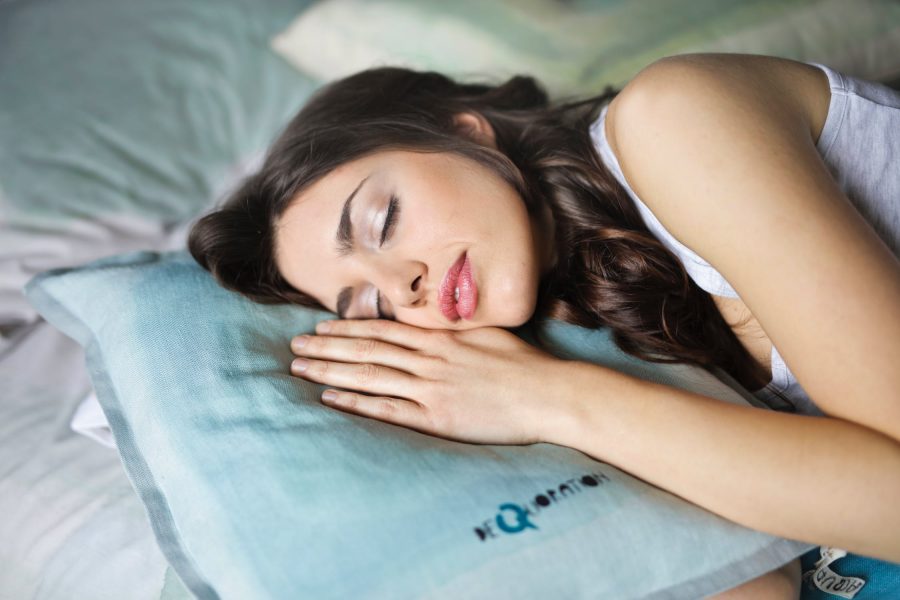As with snoring, most people who suffer from sleep apnea tend to deny it, even if on some level there is acceptance of it as fact. The danger lies in ignoring the significance of what happens to the body when your breathing repeatedly stops and starts during sleep. For the person who has sleep apnea, some symptoms may include experiencing dry mouth or a sore throat upon awakening, feeling sleepy throughout the day, difficulty paying attention and irritability.
For the spouse or partner of the person with sleep apnea, they may witness loud snoring, episodes of breathing cessation while sleeping and abrupt awakenings combined with shortness of breath. Here are five dangers of sleep apnea for those dealing with it:
High Blood Pressure of Heart Problems
The multiple episodes of a sudden drop in blood oxygen that occur during sleep apnea causes blood pressure to rise putting a strain on the cardiovascular system. It is not uncommon for the heart rate to go into atrial fibrillation, or fast, fluttering heartbeat, increasing the risk of stroke. With underlying heart disease, there is a greater risk of sudden death due to the irregular heartbeat. While this is not intended to scare you, it is important to recognize that if you struggle with sleep apnea, you need to consult sleep apnea doctors as soon as possible.
Daytime Fatigue
It is very hard for the person struggling with sleep apnea to achieve restorative sleep to refresh the body and mind. This makes for a day plagued with fatigue, drowsiness, and irritability. You might be moody, depressed or quick-tempered. Youngsters with sleep apnea may have trouble keeping up their grades or exhibit behavioral problems. Your concentration may suffer, and you may even find you fall asleep while at work, watching television or worse while driving a car. Sleep apnea deprives the person of needed rest resulting in a daytime deficit increasing the risk of the workplace and motor vehicle accidents.
Weight Gain
Much is given to excess weight not being necessarily bad for people, despite this possibly being simply a means of assuaging the guilt of being overweight. Extra pounds present an array of problems, not the least of which is sleep apnea, which then leads to weight gain creating a vicious cycle. When a person is heavy, they can have fatty deposits in the neck that contribute to blocked breathing during sleep.
The resulting sleep apnea is responsible for releasing the hormone ghrelin, which induces cravings for sweets and carbs. If a person is tired all the time, there is less likelihood that calories consumed will be transformed into energy. That which is not converted to energy is converted to fat. It is much harder to slim down when you have sleep apnea. Treatment will help improve this seemingly never-ending story.
Diabetes
Metabolic syndrome is a disorder with a collection of risk factors that are linked to a higher risk of heart disease and insulin resistance.
Increased Waist Circumference
While obesity increases the risk of both diabetes and sleep apnea, studies have not revealed a causal relationship between the two. However, lack of deep sleep prevents the body from properly using insulin, which eventually results in being diabetic.
Sleep-Deprived Spouse or Partner
Snoring is frequently one of the obvious symptoms of sleep apnea as are the abrupt awakenings, gasping for air and shortness of breath. For partners trying to sleep with the person who has sleep apnea, they are most likely to suffer sleeplessness from the same symptoms just by being a witness. You cannot blame a partner for sleeping in another room just to be able to get some rest.
When both partners suffer from lack of sleep, it can be a drain on the relationship. Those who are bed partners of one who snore end up being sleep-deprived as well. Often, it is the partner who does not have sleep apnea who finally encourages their partner to see the doctor for the same sympathetic need for sleep.
If these dangers seem frightening, at least one must look at them that way. For the unnecessary ramifications of a car crash or a heart attack or stroke or a considerable list of other related conditions, it is crucial to take sleep apnea seriously. There are multi-specialty sleep specialists who might recommend home sleep testing, auto-adjusting CPAP therapy, a dental appliance or any one of several types of corrective surgery. Treatment is directed at the individual as each case is unique, but treatment is real and ready and waiting for the person to simply seek it to enjoy a healthier, happier life.

